Time is Luck: Michael Mann’s ‘Heat’ and the Darkness of Filmmaking
Michael Mann is not only a celebrated writer/director, television producer, and the reason we all love Phil Collins (Thank you for that, by the way), he’s also an author. He’s written a sequel to his magnum opus, Heat. It’s called Heat 2, which is kind of awesome. If someone says, “Hey. I haven’t read the first one,” you can say, “You don’t have to read it, fam. You have to watch it.” Then that person would definitely look at you like you’re crazy then you’d have to explain the following: Heat is a crime thriller written and directed by the guy who gave us the living embodiment of the 80s, Miami Vice (and the amazing movie adaptation).
It’s an underrated masterpiece. Look at Colin Farrell’s mustache. He looks like a scumbag. I love it.
It’s a three-hour saga. It was released in 1995 but its legendary status in cinematic history comes from the fact that it is the first movie to feature Al Pacino and Robert De Niro. Legends. Fucking thugs, bro. They’re why I do this; why I make movies, and why I pretend to be people (I’m not just talking about acting, I’m talking about how in my daily life, I pretend to be a sane, fully functioning human being).
Michael Mann is one of the best American filmmakers. Throughout his career, he’s made moody urban crime thrillers shot with rich cinematography and color. He’s also low-key one of the most ripped-off filmmakers of the last 40 years. There would be no serial killer genre without his film, Manhunter, which is also the first Hannibal Lecter film. Without Michael Mann’s influence, The Dark Knight probably wouldn’t be as good as it is. His films are brilliant exercises in style while also focusing on realism; a beautiful contradiction, much like the protagonists in his films.
I think Chris Nolan owes Michael Mann some money. At least a beer or something.
Michael Mann’s films are usually about cops or robbers or both. Heat is the cops and robbers movie to end cops and robbers movies. But it’s not just a traditional genre exercise. Like all Michael Mann films, his protagonists are a little crazy. They’re plagued with loneliness. They struggle with duality. They’re obsessive. They work hard and they’re the best at what they do. His protagonists are very detail-oriented and hyper-focused on the process. They’re like filmmakers. Filmmakers are obsessive. They’re focused on the process. They want to do what they can to make the best movies possible. That’s what Michael Mann’s films are about in a way. Especially Heat, a film about filmmaking and the darkness that comes along with it.
The Action is the Juice
When Michael Mann made his early crime dramas, he used retired Chicago police detective, Chuck Adamson, as a technical consultant. Adamson would tell him about different cases including one about his pursuit of a career criminal, Neil McCauley. When Adamson was investigating McCauley, he bumped into him in a coffee shop and the two of them sat down and had a cup of coffee. The next time they saw each other, Adamson shot McCauley dead in a shootout. It was poetic. The stuff movies are made of, which is exactly what Michael Mann thought and he went home and wrote Heat.
Heat is technically a remake. it was originally a made for tv film called L.A. Takedown, which is the perfect title for a made for tv film in the late 80s. It was 90 minutes, half the runtime of Heat. And it’s considered not very good. It’s more like a first draft. But it’s a movie. Which would be pretty cool actually. Sometimes I watch a flick of mine a few years later, and I think to myself, “Damn. I wish I could get a crack at that one again. I’m so fire now.”
Someone please give me money to make movies. I don’t want to resort to this and go to jail.
After his critically acclaimed adaptation of The Last of the Mohicans, Michael Mann could pretty much make whatever movie he wanted. He was never satisfied with L.A. Takedown and he wanted to shoot the movie he originally envisioned, a saga about Los Angeles told through the lens of a crime thriller.
If you’re gonna make a saga, you need actors who can give the saga some scope. The stars are Al Pacino and Robert De Niro. That’s wild. My man’s made a shitty tv movie and the remake stars two acting legends and is one of the best movies of all time. What a flex.
The film was marketed as the Pacino/De Niro Showdown. By this point, both actors had cemented their status as legends. In the 70s, they starred in some of the greatest movies ever made, and in the 90s they were in the middle of a career renaissance. After GoodFellas, De Niro got cast in some of his best roles and Pacino had just won an Oscar after making a comeback in 1989. They’re constantly compared to each other. I think that’s because they’re both Italian and played gangsters. But this was the first time they appeared onscreen together. They both starred in The Godfather Part II but they don’t have any scenes together. The Godfather Part II is both a prequel and a sequel. The prequel stars De Niro as a young Don Corleone and in the sequel portion, Pacino plays his son, Michael.
It’s the greatest movie ever made.
The Greatest Movie…
Ever Made.
I remember when I first heard of Heat, I was so excited. Al Pacino and Robert De Niro are in the same movie. Wow. Then I watched the movie and discovered they only had three fucking scenes together. Again, the movie is three hours. Al Pacino plays Lt. Vincent Hanna. He’s the head of the major crimes unit and he’s investigating an armored truck robbery that’s turned into a homicide. Hanna is an obsessive detective. He’s unpredictable but he’s a brilliant detective; he’s hyper-alert, constantly jittery, and aware of his surroundings. He yells constantly; mainly to keep criminals off balance or maybe it’s because he’s got big cokehead energy. I mean my man’s is constantly up at night and moving with the speed of a rabbit. There is no way he ain’t skiing.
My man’s a fiend for the booger sugar.
De Niro plays Neil McCauley, a career criminal. He’s the head of the gang that commits the robbery-homicide that starts Hanna’s investigation. McCauley is a detail-oriented thief. Everything is carefully planned down to the second. With him, still waters run deep. He’s quiet and it’s his precise use of words and movements that earn him the respect of his crew.
With Hanna, you get every shade of Pacino. You get the shouty Pacino everyone tolerates (I love it though. It’s like watching humanity at its most chaotic). And you get the quiet, sensitive Pacino everyone loves. As Hanna watches his marriage crumbles around him, Pacino’s silence and the slightest movement in his eyes show Hanna’s defeat and resignation to his compulsive need to chase down criminals. Pacino has never pacino’d like this before or since and it’s one of the best performances of his career.
With McCauley, you get the quiet De Niro, reminiscent of his quiet performance in Taxi Driver. Only McCauley doesn’t make want to crawl out of your skin. Unlike Travis Bickle, he’s a loner by design. McCauley doesn’t talk much about his past, but De Niro is able to say more through his body language in a way that words can’t do justice. Like Hanna is to Pacino, you get the ultimate Robert De Niro role.
“You want money? Isn’t the experience payment enough? This footage can go on your reel.”
“There’s a dead man at the other end of this fucking line.”
These two men have a lot in common. They’re both very, very good at their jobs. Hanna is the leader of an investigation unit. McCauley is a leader of a gang of thieves. Of course, they’re very obsessive about what they do for a living. Unlike a lot of people on this earth, they’ve found their true calling. But unlike McCauley, Hanna has empathy. McCauley cares about others like his girlfriend, Eady (Amy Brenneman), or his fellow thief and surrogate son, Christ Shiherlis (Val Kilmer), he has no problem murdering anyone that crosses him or an unarmed guard during a robbery. Hanna feels the pain of the people who’ve lost loved ones at the hands of people like McCauley. But in a way, he admires him. He admires his intelligence, tact, and sharpness. The respect is mutual. Real recognizes real. The casting of Pacino and De Niro adds a meta-textual element to this relationship. They’re dual protagonists. Two movies for the price of one. A cop thriller starring Pacino and a heist thriller starring De Niro. They’re intense actors. So, their first scene together has to be fire, right? Maybe they’ll pull out all the stops, and shout at each other; one calls the other a motherfucker. That’s definitely what people want. But we don’t get that. You know what the first scene with Pacino and De Niro is? They have coffee together.
Heat around the Corner
Coffee. That’s it. Fucking coffee. And you know what? It’s the stuff Oscars are made of. It’s shot in two over the shoulders and it’s the most important scene in the whole film. It occurs halfway and Hanna and McCauley have been very good at their cat and mouse thing. Hanna pulls McCauley over and does one of the most unexpected things a cop has done in the history of movies: He offers to buy McCauley a cup of coffee. At first, they talk about the stuff cops and thieves talk about. I’ve caught men like you before. I ain’t going back to the joint. But then something interesting happens; they talk about their dreams.
This isn’t even me at age 50. This is how I look after working all day and writing this.
Hanna talks about how he dreams about all the victims in the cases he’s investigated. They all stare at him; all the people that he couldn’t save just stare at him. McCauley says he has a recurring dream where he’s drowning and he has to wake himself up or he’ll die in his sleep. Hanna asks him if knows what that's about and McCauley replies, “Yeah. Having enough time.” I think it’s safe to assume that Hanna has had this dream in his life also. In this conversation, our protagonists have found the only person on this planet that can ever truly understand them. The film is not about how these men are two sides of the same coin. The story leads up to this moment and the final moments that close the film. This is the most intimate conversation these two people have ever had with anyone.
Both dreams are about running out of time. With Hanna, he thinks about all the time that has past him. He feels like he’s failed in some way because he didn’t do enough to save those who needed him. What’s done is done and there’s nothing he can do about it. He’s haunted by the image of his victims staring at him because it’s too late to do anything. McCauley’s dream is about the time he has left. Is there enough? Is it running out? What should be done with it? Not knowing has caused him anxiety that’s manifested into nightmares. McCauley tells the woman he loves time is luck. These two characters; one who’s haunted by the time he’s lost, the other worrying about the time he has left meet in the middle of the film’s runtime. That’s one of the most brilliant uses of using the structure of a story to comment on the state of mind of the characters.
McCauley lives by a philosophy, a philosophy that gives the film its title: “Don’t ever get attached to anything you are not willing to walk out in thirty seconds flat when you spot the heat around the corner.” Hanna’s response is, “That’s pretty vacant.” But he recognizes something in this philosophy because Hanna’s attachments in his personal life are slipping through his fingers. He’s in the middle of his third marriage which is crumbling because of his emotional distance and exhaustion due to his addiction to his job. He has a stepdaughter with severe abandonment issues. These are issues he should address but he’s losing people he cares about because of his job. McCauley, a man with so few attachments he barely has furniture in his home, has just started a new relationship with a woman named Eady. It’s probably the first time in a long time he’s ever cared about someone romantically. But he knows it’s doomed. She has no idea what he does for a living. The two men talk about how this philosophy is necessary for life or they’re going to have to do something else. Hanna says, “I don’t know how to do anything else and I don’t much want to either.”
La La Land
That’s Pretty Vacant
When I was younger, I really liked Heat. It has cool genre shit: Noir, heists, an obsessive detective, and shootouts. Watch the shootout. It’s the best shootout in movie history. But now I find myself looking for the quiet moments. When I was younger I wondered why Heat was three hours. Now that I’m older I understand. The film is not just about the heist and the investigation or the shootouts. It’s about the moments in between all that; picking up your stepdaughter from school, having money problems because of gambling addiction, meeting someone at the library and hitting it off, trying to better your life after you get out of prison and everyone treats you like garbage, starting a new romance, or watching one fade away.
Hanna and McCauley eventually have their showdown. As McCauley and his crew are in the middle of a bank robbery, Hanna and his crew show up and everyone tries to light each other up. It’s a warzone. It’s exciting. Cars turn into swiss cheese. Men on both sides of the law lose their lives. It’s tragic. While they don’t have a lot of screen time, we watch these characters play with their kids, dance with their wives, and bond with each other over drinks after work. At the end of the day, this is the true magic of Heat; the moments we all relate to.
Me on set at age 50 trying to get the shot. But, you know, replace the gun with a camera.
There is a price to pay for being obsessive and overly dedicated to your job and something you consider your calling. Hanna’s marriage crumbles as the film progresses. After the bank shootout, after one of Hanna’s men, Bosco (Ted Levine) loses his life, he finds another man in his wife’s house. Throughout the film, she’s been attempting to work on their marriage until she goes out in the evening without him and cheats on him. McCauley’s fate is similarly tragic. After he meets Eady, he has every opportunity to put his life behind him and have a regular life. But he doesn’t. Hanna and the entire LAPD are hunting McCauley. When he finally has the opportunity to escape L.A. with Eady, he decides to tie up a loose end and murder the person who ratted him out to the L.A.P.D, causing the death of his friends and for him and his surrogate son to go on the lam. He’s home free. But that obsession is a motherfucker. And who’s waiting for McCauley when he gets there? Vincent Hanna. He leaves Eady in thirty seconds flat and for one final time, Hanna hunts him. McCauley doesn’t get away this time. He’s shot and dies holding the hand of Hanna, the only person on this planet that truly understands him.
“That was great. Tell them to go back to one.”
As I mentioned earlier, Heat is about filmmaking. “But George, that doesn’t make sense, it’s about cops and robbers, and Al Pacino shouting all the time. Go to bed. Your brain is malfunctioning.” Maybe it is. Who’s to say really? Michael Mann is a detail-oriented filmmaker. His crime thrillers are known for their realism and attention to detail. He has spoken to cops and bank robbers. He’s watched them behave and listened to their stories about growing up and balancing their home lives. He creates very intricate scenarios for his actors like intense weapons training, casing out banks, and ride-alongs with police to put them in the mindset of the characters. The man knows what it takes to be a filmmaker and the obsessive nature that comes along with it. This means on some level, he knows the darkness that comes with it.
Me on set at age 50 waiting for the crew to set up so I can get my shot before the sun rises. When the fuck is this coffee kicking in?
Filmmaking is about the process. I know it’s wild to compare filmmaking to bank robbery but indulge me for a second. Filmmaking requires a team. And the team focuses on one thing: pull off the job as smoothly and as successfully as possible. The end goal is money (hopefully). Each team member has a specialty. They must be prepared and efficient with their time or the job is a failure. In filmmaking, your money and reputation are tarnished. In a bank robbery, you robbery you get arrested. The former jail is metaphorical. The latter is literal.
Me on set at age 50 telling the producer I want to shoot this in a oner.
Now let’s jump to the other side of the law. Like detective work, filmmaking requires a lot of research, whether that’s something fun like watching films for inspiration or something more technical like cameras and lenses. It requires paperwork. A LOT of paperwork. Paperwork to keep track of every single thing that would lead you to finally crack a movie. You go from location to location, interview people, and review it over and over again.
All jobs require dedication, sleepless nights, and sacrificing a lot of your social life in order to obtain any semblance of success. Filmmaking is about the grind; the hustle; being detail-oriented. Filmmakers are constantly stressed, jittery, hyper-alert, and aware of their surroundings. They’re obsessive. I’m obsessive and there are times when I’ve sacrificed my social life. I make movies. I teach kids how to make movies and it requires a lot of review and a lot of sleepless nights. Like in Heat there is a lot of camaraderie. But when you get home, it’s late and the apartment is eerily quiet. It’s jarring especially with the constant noise you’re in every day. Filmmakers spend a lot of time on the craft and the hustle, the side hustles but too often we miss a birthday, cancel dates, and friends and family move away. Some of them pass away.
We burn out. It makes you think about time. The time you give yourself and the time you spend with the people you care about. Heat is a cautionary tale. I’d advise filmmakers to watch this celebrated classic with that in mind. Cause I know a lot of us share this mentality: I don’t know how to do anything else. And I don’t much want to either. That’s all good but when it comes down to it, we can’t forget about time. We don’t get it back. Some of us got a lot of work to do. Me included.
Time is luck.
Me when I come home late from work.
Replace the gun with a camera.


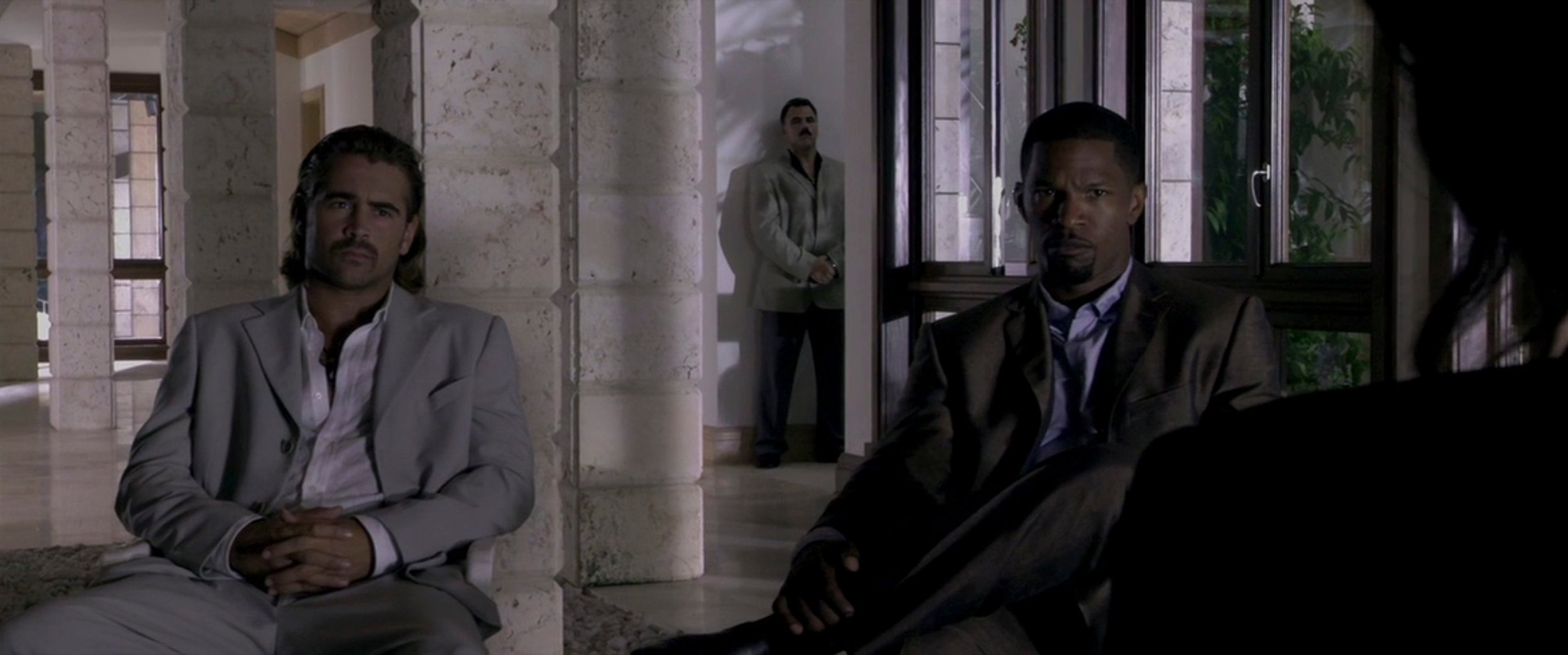


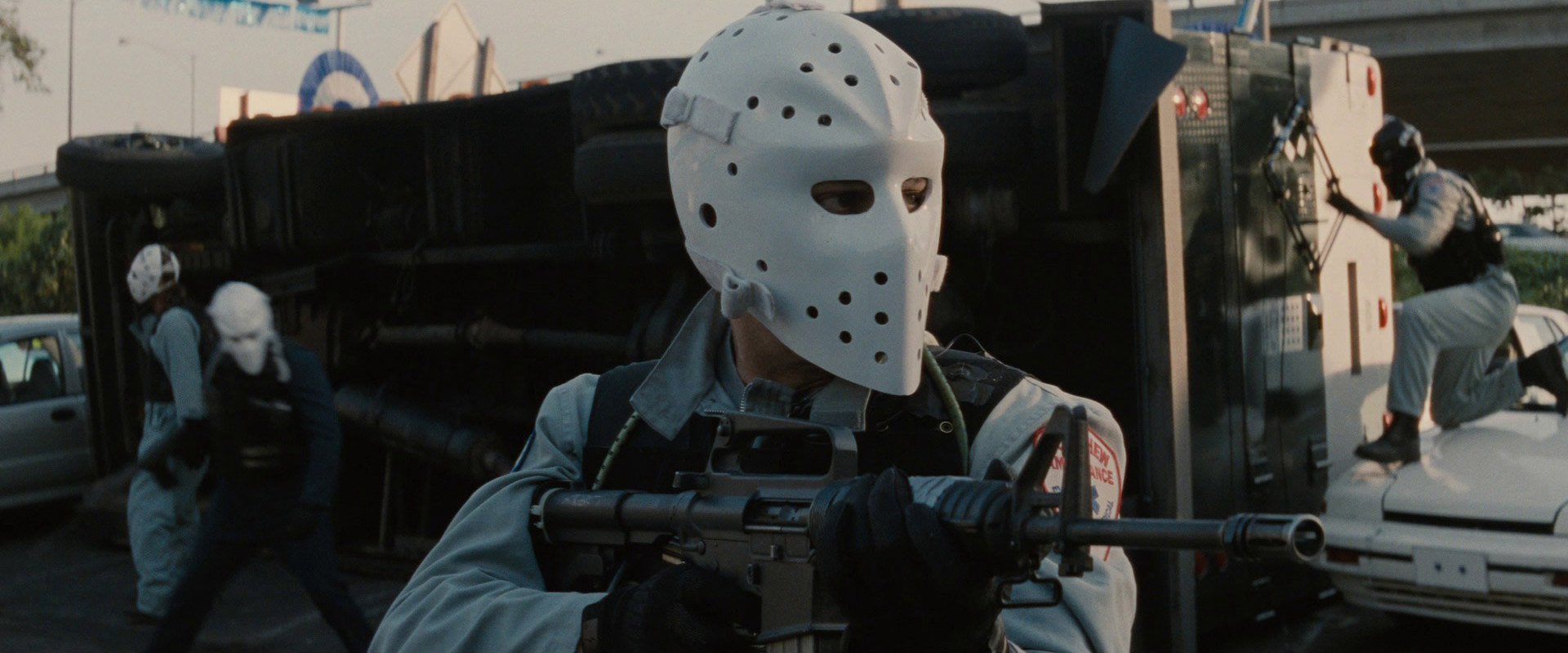



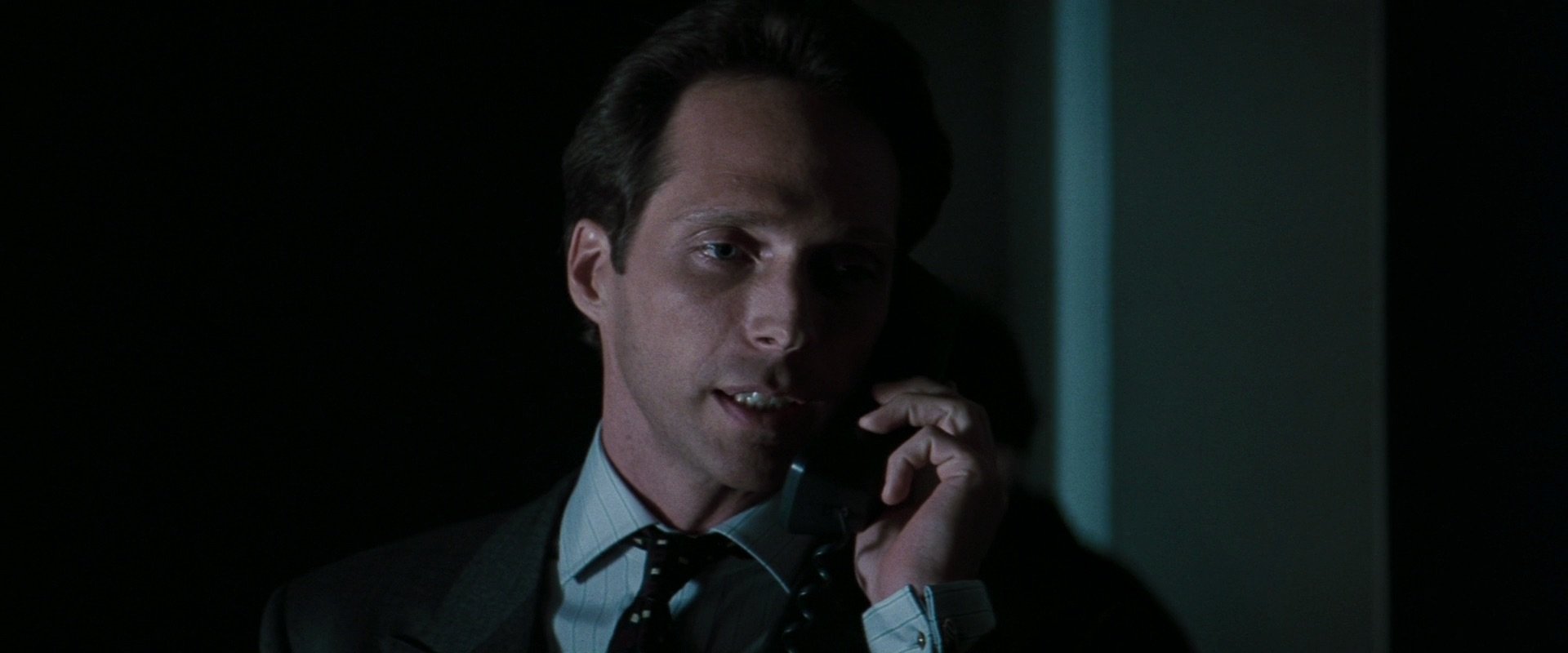
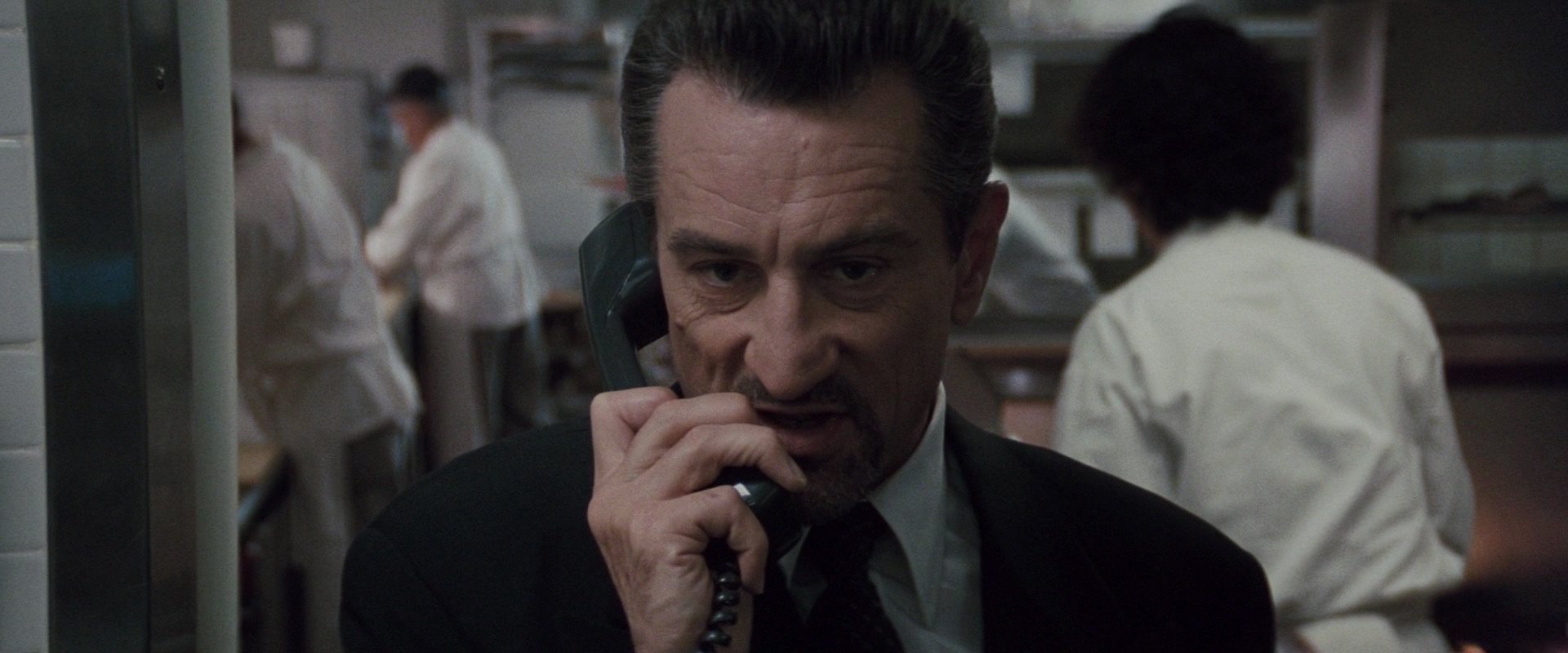

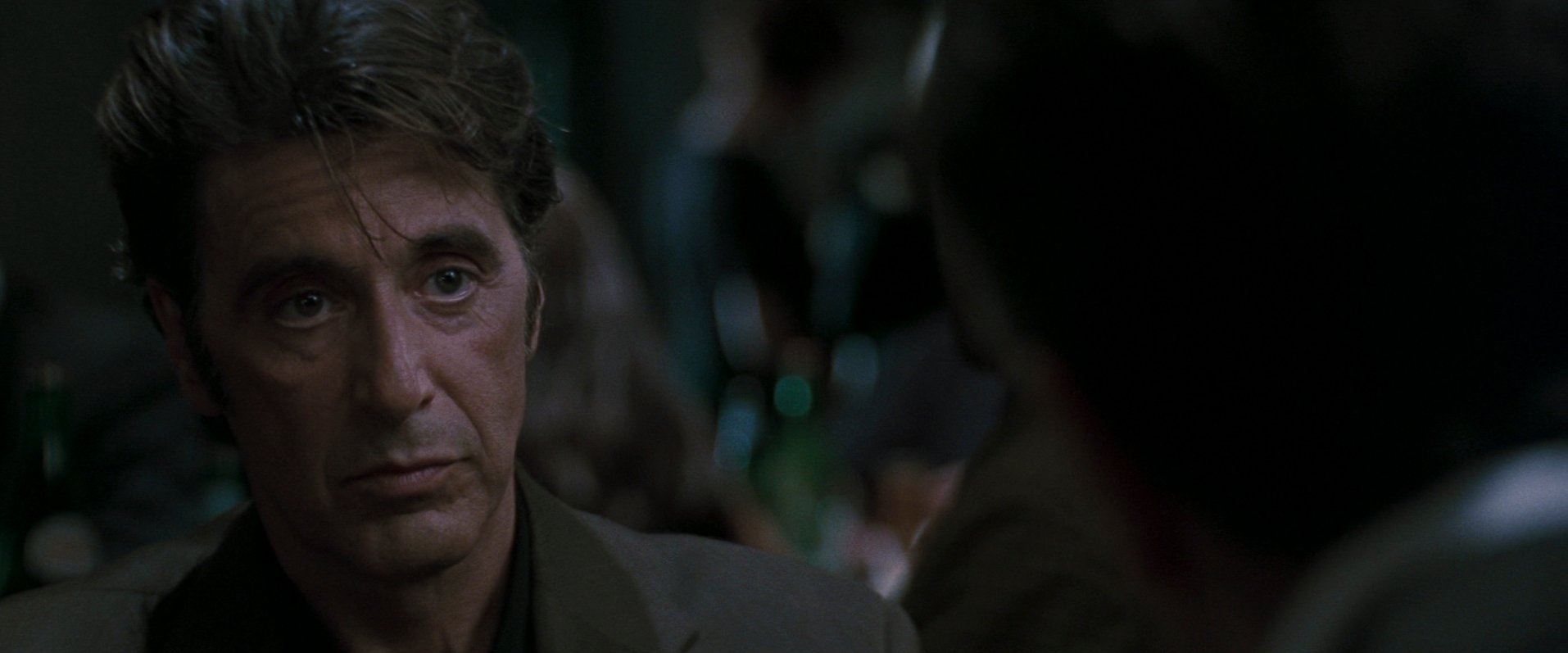






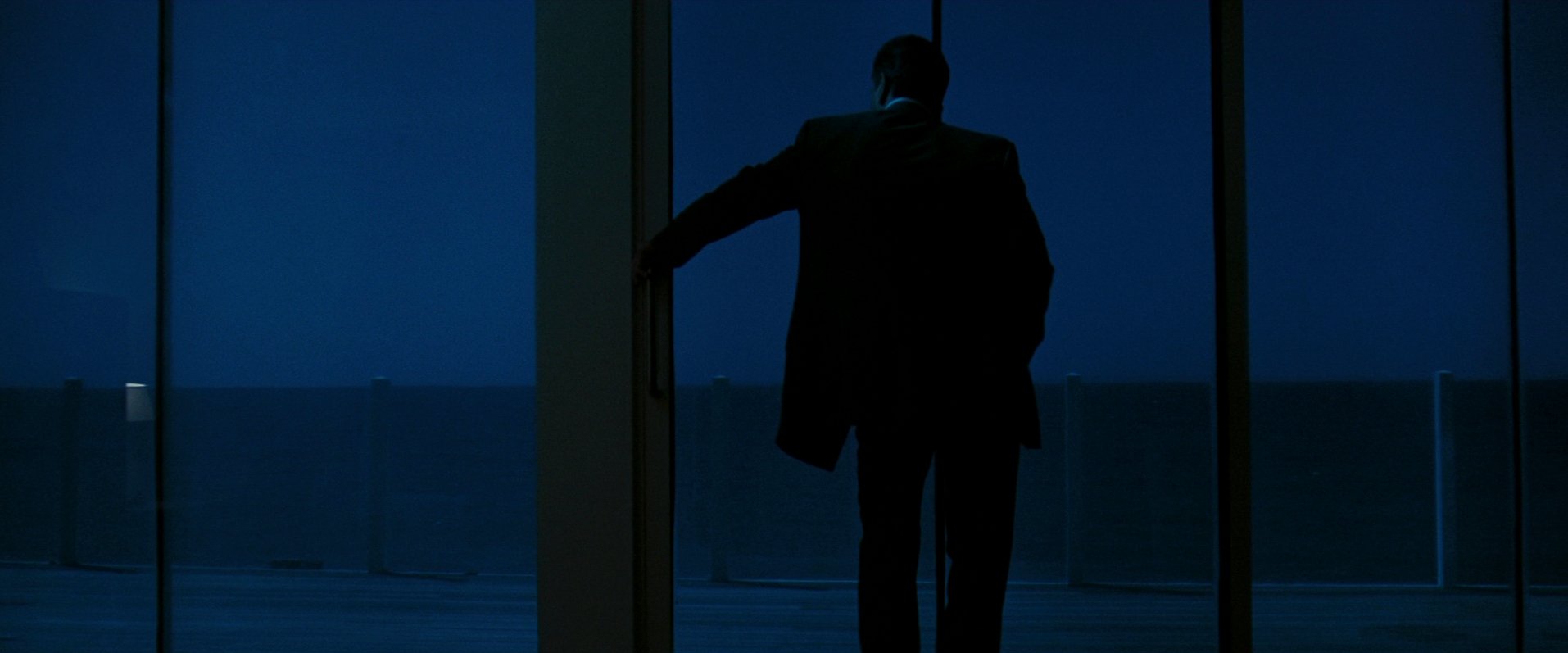

George has just robbed a bank. He ducked into a coffee shop after spotting the heat around the corner. Have a coffee with him.
He wants to talk to you about one of his favorite movies, ‘Heat.’